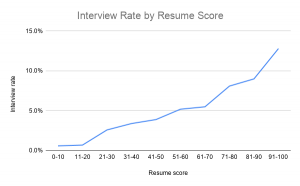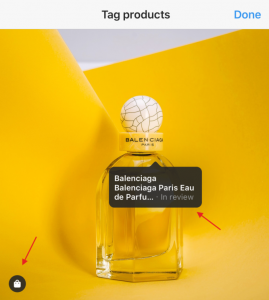
A major chunk of link building strategies are still shady to say the least. You could of course pursue strategies like guest blogging, giveaways, contests and directory listings to gain links legitimately. However, you must also consider the cost-benefit angle to these strategies. Guest blogging, for instance, helps you build one backlink at a time. That may not be sufficient, especially if you have a competitor who already has thousands of quality backlinks pointed at their website.
Strategies such as guest blogging are okay when you are building links from high authority sources. For the relatively smaller sites though, your strategy must be on earning these backlinks. That is, you must produce content that earns you dozens of backlinks from dozens of industry websites. This way, you do not have to pursue these links one at a time.
Let’s take a look at some strategies that could help you achieve this.
Step 1 : ‘What Are Bloggers Looking For?’
Content marketers frequently use the “keyword research” method to write content. The modus operandi is simple – identify keywords that your target audience is looking for and draft content to rank for these keywords. The problem with this strategy is that it only works with websites that already enjoy high authority. With more than 2 million blog posts written each day, this strategy may not work if you are a lesser known website trying to outrank your established competitors.
One way to get around this challenge is by catering to what other bloggers in your industry are looking for. In his recent article about website usability, Joe Ryan linked to at least four pages that cited statistics and studies that emphasize his points. Joe is not alone. Neil Patel cited over half a dozen studies in just this one article. If your website had comprehensive articles with such statistics and studies, you are likely to earn links from bloggers like Neil Patel when they are drafting their content.
Step 2: Building Links To Your Content
The Google search algorithm has evolved quite significantly over the past decade and today, the authority of a website matters more than the sheer number of backlinks pointed at any page. But having said that, backlinks are still an important component of SEO and can significantly alter search rankings for keywords that are less competitive.
In other words, building links to rank your homepage or product page can be an extremely long and tedious process. It is however simpler to rank blog posts that talk about studies and statistics in your industry.
The strategy here is straight-forward: invest all your link building efforts on ranking these statistics and studies related blog posts for their respective keywords. When this happens, you are more likely to be seen and linked by other bloggers writing on topics related to your industry. When done right, this strategy can help you quickly amass hundreds of links which increases the authority of your website. In turn, your product pages start ranking for their relevant keywords as well.
Step 3: Second Tier Linking
What if your blog is too small to matter? No matter how ‘link worthy’ your content is, you may still not be ranking on top for the relevant search terms. When you do not rank on top, you are not seen by other bloggers which reduces your chance of earning new backlinks from other websites.
It needs to be pointed out that SEO is a long-term strategy and if your blog is too small to matter, you should first focus your efforts on making it bigger. But while SEO obviously takes time and effort, there are other ‘link earning’ strategies out there which can hasten the process.
One strategy that has worked for me is second tier link building. The objective here is to publish your ‘link earning’ blog articles on other, more established websites that link to you. In doing so, you raise the authority of websites linking to you and as a consequence, increase the authority of your own website.
Let us for instance, assume that you plan to write an article that comprehensively covers all the statistics and studies pertaining to website usability. If your website does not have a significant search presence, you may choose to publish this article on a relatively more established website that accepts guest contributions. Guest contributors are routinely provided with the abillity to link to their websites from the author bylines.
Writing a guest post on a highly authoritative website helps you rank your ‘link earning’ blog post on the top of Google search for the relevant queries. Over time, your guest post earns dozens of links from other blogs and websites in your industry which helps raise the authority of your own website (In case you are curious, these are called ‘foundational backlinks’ and help with building your TrustRank).
In conclusion, marketers need to acknowledge that earning a backlink can be a lot more difficult than building one. But mastering this strategy can help you grow your business a lot quicker than you could conventionally and this alone is reason enough to give it a try. What do you think?
* Adapted lead image: Public Domain, pixabay.com via getstencil.com
A major chunk of link building strategies are still shady to say the least. You could of course pursue strategies like guest blogging, giveaways, contests and directory listings to gain links legitimately. However, you must also consider the cost-benefit angle to these strategies. Guest blogging, for instance, helps you build one backlink at a […]
The post How To Write Content That Will Earn You Backlinks appeared first on Search Engine People Blog.
Search Engine People Blog(70)
Report Post








